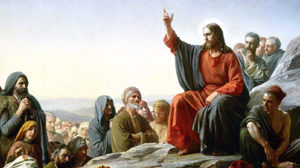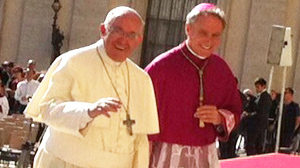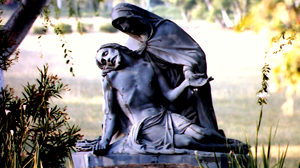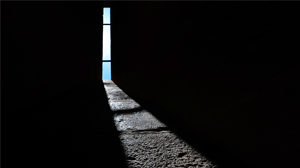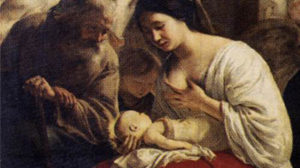Ezra 6:7-8, 12b, 14–20
Luke 8:19–21
Reflection:
While studying Church Law at Catholic University of America, I had a classmate from Tanzania who was memorable for a great many reasons. An endearing quality embodied a completely at home approach to new discoveries. He always began with the question: “How can this be ?” Whenever he was confronted with something new, he began with this question and followed the pathways until he came to some deeper understanding of the concept or issue and settled into a new way of seeing it and a new sense of peace with the idea. Today’s scriptures invite us to consider the very same reality in our time and in our lives.
How can this be? In Ezra, we see that the remnant of the Jewish people have received permission to return to their homeland after decades of servitude and exile. Not only have they returned to ancestral lands, they are invited to revitalize their covenantal life with God by rebuilding the temple in Jerusalem with the pagan government paying for it. A new order, unfamiliar to this next generation of the Jewish faith, has been born. They will need to follow divine guidance to discover a deeper understanding of God’s design in this and achieve a new peacefulness with God’s direction for them as a people and as individuals.
How can this be? We have a very brief but loaded selection from Saint Luke’s gospel for today’s reflection. It seems straight forward enough. Jesus is teaching. His family shows up to see Him. We have the pronouncement that insists that His family is those who hear the Word of God and act on it. Those who heard this may well have been completely shocked, asking how this could be. Why would He dishonor His family like this ? Minds had to be reeling and tongues had to have started wagging. With a second look, however, we might discover something new, something intentional on the part of Jesus. With this simple statement, Jesus has created an entirely new reality, a new world order and a new way of seeing and understanding relationships. Jesus has redefined the concept of “family”. No longer is “family” caused by or limited by blood lines. Family is now defined as a faith bond. Family is now completely open to include all who hear the Word of God and act upon it. By no means is Jesus rejecting His mother and family members. After all, do we know of anyone other than Mary who more openly and readily heard the Word of God in her life and acted upon it? Not likely. Mary is at the heart of this new reality, this expanded concept of the family tree.
How can this be? Jesus’ redefined understanding of family is not simply a nice idea to be kept warm and dusted off from time to time. It has implications for today’s realities. We all run into those moments when we are asked to see things in a new light, look for a deeper or new understanding of an idea or a set of circumstances. We are asked by both Ezra and Luke today to sit with it awhile, pray over it and bring the received Word of God to bear upon it. And then act on it. I recently was engaged in a discussion with a group of very fine people who were heavy into the migration of peoples issue we are all so familiar with these days. Some expressed what politicians have been offering on the subject but honestly, not many found their comments helpful to understanding. Thirty second clips are offered to incite emotion rather than thoughtfulness on an issue. Others reflected upon their own ancestors coming to American shores and saw them as somehow different from today until someone pointed out that in those days there was a open welcome mat out for immigrants – no quotas, no conditions, no requirements, and no monetary costs. If you could get here, you could stay. We have become far more restrictive and selective today. I was delighted with how the session ended. We decided that we ought to look to the Scriptures for insight on how to deal with the neediest among us and the poor. We decided to look to the teachers of our faith in the encyclicals and instructions of the Holy Fathers since St. Pope John XXIII ( Pacem in Terris) and continuing on to our own Conference of Catholic Bishops’ statements on immigration. We have over fifty years of profound teachings on the divinely given human rights regarding the migration of peoples. As we are asked to deal with the migration of peoples into our own country, we might be asking, “How can this be?” As we experience through television news the pain and suffering of the hundreds of thousands fleeing violence and death in the Middle East and the European countries’ efforts to cope with it, we are beset with the question, “How can this be ?” Perhaps we must go back to the Scriptures and the teachings of our Church, receive God’s Word anew into our hearts and lives, pray over it and then act upon it. Perhaps we are being invited to see relationships anew – who exactly are my family members and how am I to deal with this expanded family tree?
Fr. Richard Burke, CP, is a member of St. Paul of the Cross Province. He lives at St. Ann’s Monastery in Scranton, Pennsylvania.



